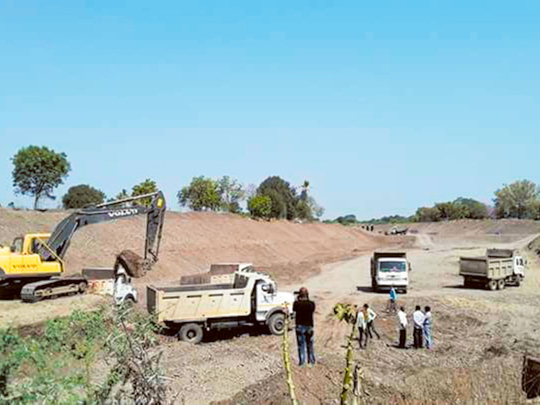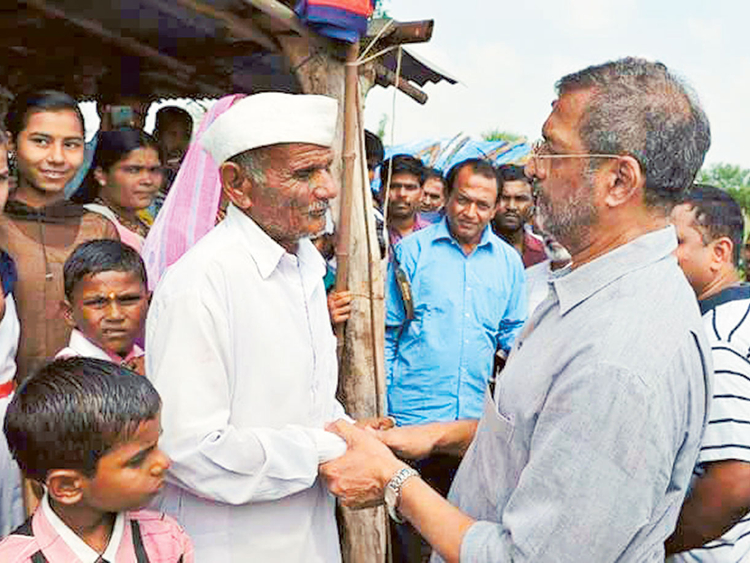
Mumbai: As the suffering of people battling the severe drought in Maharashtra makes headlines daily, the Maharashtra government, NGOs and other organisations have been trying hard to help the victims.
The less-than-a-year-old NGO, Naam Foundation, started by Marathi actors Nana Patekar and Makarand Anaspure, was a result of hearing the heart-rending stories of farmers’ committing suicide and the agony of living in a drought-hit area. It prompted the duo to quickly help the desperate families.
Initially, aid was given to help farmers, particularly families of those who ended their lives in the face of mounting debts, at a personal level. Providing a package of Rs15,000, blankets, clothes and medical kit, bicycles to schoolchildren and sewing machines to women, adopting villages and more just didn’t seem enough. The founders deeply believed that a lasting solution had to be found to deal with the water crisis and the suffering of rural people. Therefore, Patekar, Anaspure and the Naam Foundation began to focus on river rejuvenation and water conservation. When the monsoon arrives — meteorologists forecast that India will have a good monsoon this year — they feel the rivers and water bodies should be in top condition to hold water so that it percolates beneath the ground to reach the borewells in village homes.
“After two to three years of drought, it is a pitiable situation for farmers who don’t even earn daily wages through government employment schemes as there are none,” said Rajabhau Shelkhe, a volunteer supervising the river rejuvenation work, speaking on phone from Pimpaner village in Beed district. “In Beed, we have cleared 110km of river beds filled with black soil, including the rivers Riddhi and Siddhi,” he said.
There is frantic work going on in several districts of Marathwada and Vidarbha — in Latur, Jalna, Parbhani, Osmanabad, Aurangabad and Beed — where the drought has been severe. “Here, with the help of villagers, heavy machinery is being used to desilt rivers, clean up and deepen river beds and ponds and build embankments and walls so that when the rains arrive, the water does not flow out but rather penetrate into the deep ground,” said Sachin Arote, an interior designer by profession who has been drawn into the work done by the NGO. He coordinates work, channelling funds that have come in quickly.
According to Shelkhe, “The villagers are so eager to get their lakes, ponds and rivers back to the original depth that they all come forward to help us out. A government contractor, Keshavrao Aghav, has provided 20 excavating machines (Poclain excavators) free of cost as a social cause.” The response has been tremendous as villagers work daily from 7am till 11pm along with the Naam team and never ever want to see dried up rivers.
“Excavating over 550km length of rivers as well as water bodies in the worst drought-hit areas seems impressive. But this is just 2 per cent of the total length of rivers in Maharashtra,” says Shelkhe. It has been gruelling, sincere work for the NGO for the last nine months and in “August we hope to see the fruits of our labour and, of course, continue it across the state.”
Working along with villagers in the swathes of parched land, what is odd, he observes, is that not a single political leader has offered to help them “but are instead looking a little disturbed”.













